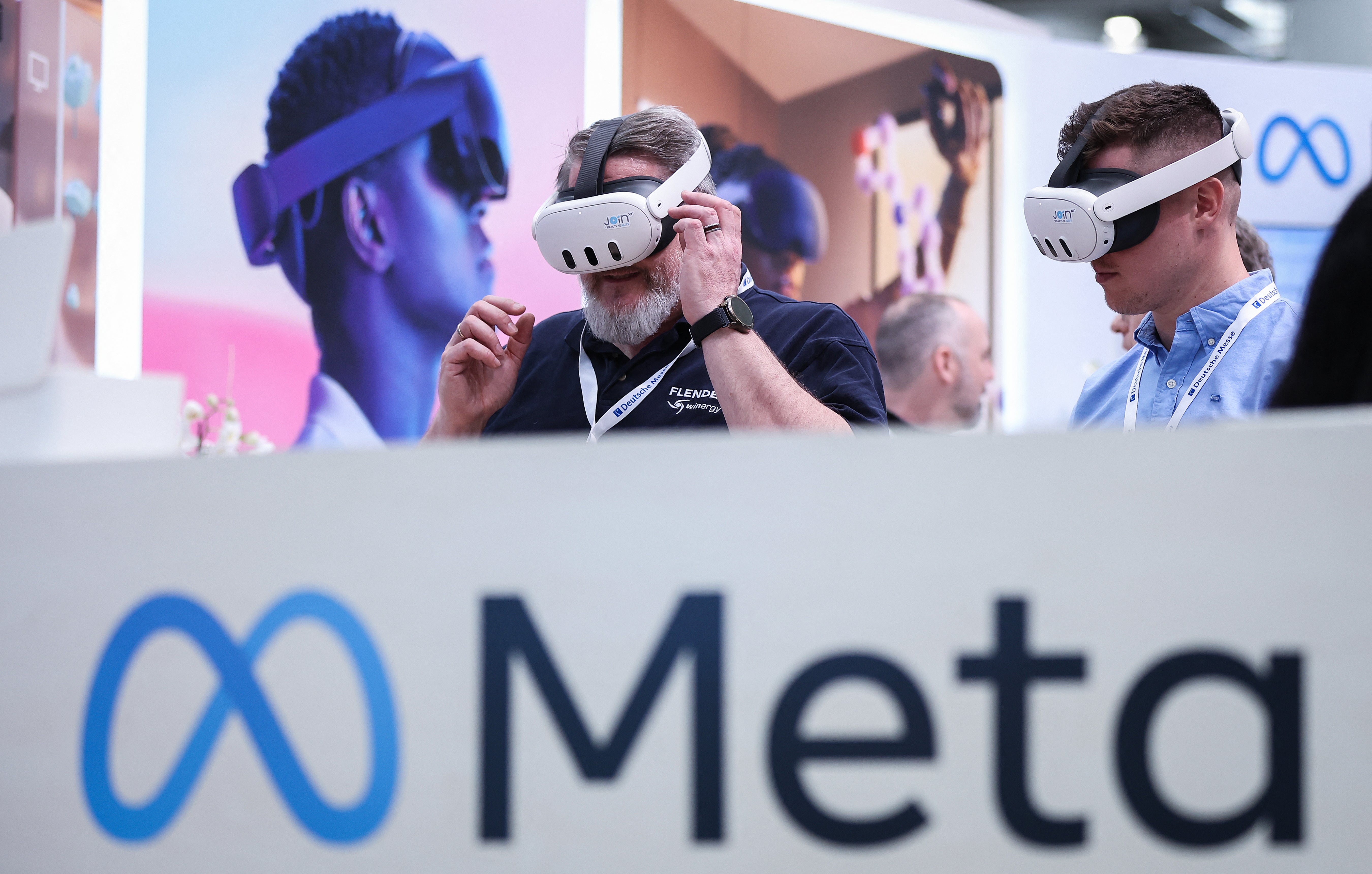Meta built the modern social network. Now it is spending billions on making it obsolete
Facebook and Instagram are out; smart glasses and AI assistants are in

Your support helps us to tell the story
From reproductive rights to climate change to Big Tech, The Independent is on the ground when the story is developing. Whether it's investigating the financials of Elon Musk's pro-Trump PAC or producing our latest documentary, 'The A Word', which shines a light on the American women fighting for reproductive rights, we know how important it is to parse out the facts from the messaging.
At such a critical moment in US history, we need reporters on the ground. Your donation allows us to keep sending journalists to speak to both sides of the story.
The Independent is trusted by Americans across the entire political spectrum. And unlike many other quality news outlets, we choose not to lock Americans out of our reporting and analysis with paywalls. We believe quality journalism should be available to everyone, paid for by those who can afford it.
Your support makes all the difference.Almost all of Meta’s money comes from ads shown to people on social networks. But you’d be forgiven for thinking otherwise.
That’s because so much of the discussion from within the company is about anything but social networks. Even down to its name, it would prefer you to think of it as a metaverse company – or, more recently, an artificial intelligence company.
That effort to move away from social networks has proven costly. In its most recent results, released this week, Meta said that the “Reality Labs” operation that aims to build the metaverse lost $3.85 billion.
That means that in total it has lost $45 billion on the operation since 2020, when it started reporting separate results for that division. It does have some work to show for it – the recent release of the Meta Quest 3 was met with rave reviews – but it doesn’t have much money to show for it.
And now Meta is spending even more money on artificial intelligence. During a call on those same results, Mark Zuckerberg noted that the company was spending more money than ever on AI research – and that it is not in danger of making money anytime soon.
“Historically, investing to build these new scaled experiences in our apps has been a very good long-term investment for us and for investors who have stuck with us,” he said.
“And the initial signs are quite positive here, too. But building the leading AI will also be a larger undertaking than the other experiences we’ve added to our apps, and this is likely going to take several years.”
That has spooked investors. For years, shareholders and analysts have been worried about the vast sums of money being poured into Reality Labs, and the lack of profits that are coming out.
Now, Meta appears to be doing the same with AI. In much the same way as the metaverse, Meta would prefer to be thought of as artificial intelligence company, rather than a social network one.
As with the metaverse, it does have something to show for its investment. The recent introduction of its large language model, Llama 3, was well received, and it has shown an admirable commitment to being open about its work in artificial intelligence.
Some of that AI work will benefit the more traditional social networks in straightforward ways. Allowing users to chat to its Meta AI through its messaging apps offers easy access to its artificial intelligence and quick ways to improve them, for instance, and Meta has said that it hopes to use the technology to improve its ad offerings.
But really both the metaverse and AI seem to be about finding a new way of using the internet that does away with the feeds and friends of traditional social networking. Meta clearly believes that it is building the future, though it is yet to convince many of its investors.
Meta does still have the capability to build social networks. For years, it had only ever made Facebook in house – the giant networks of Instagram and WhatsApp were acquired, though Meta did much to build them.
But over the last year, the success of Threads suggests that there are still new kinds of growth to be found in traditional social media. But that might have more to do with the fact that X/Twitter has faced problems, and Threads offered an alternative.
Meta’s work in the metaverse might finally be seeing some more successes, too. As part of the same results, Mr Zuckerberg spoke about Meta’s smart glasses, which it makes in collaboration with Ray-Ban.
He pointed to the fact that a new update brings multimodal AI, so that they can understand a variety of inputs. And he said that the glasses were sold out in many colours, suggesting that demand is high.
“I used to think that AR glasses wouldn’t really be a mainstream product until we had full holographic displays,” he said. “But now it seems pretty clear that there’s also a meaningful market for fashionable AI glasses without a display.”
Those glasses might offer a hint at the future of Meta: smart technology on our faces to enable the metaverse, powered by AI. Zuckerberg certainly hopes so – and he’s spending an awful lot of money trying to convince everyone else.
Join our commenting forum
Join thought-provoking conversations, follow other Independent readers and see their replies
Comments